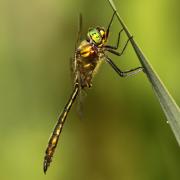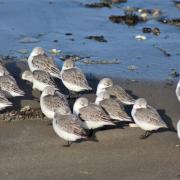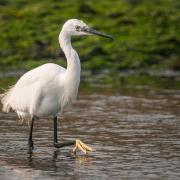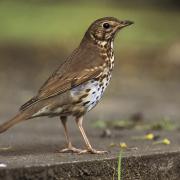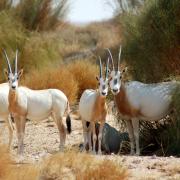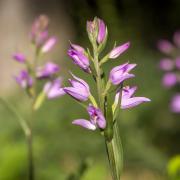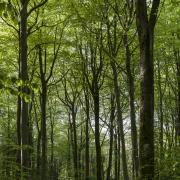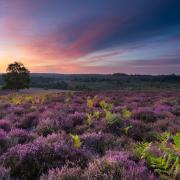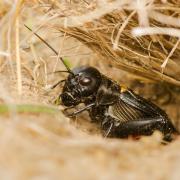With the county’s pollen loving species in decline, Kizzie Henderson from the Wildlife Trust explains how acting now can help to save our plants, flowers and most importantly, our crops for future generations to come
With all the flowers that populate our fields and gardens, it is easy to take them for granted. But our beloved plants such as daffodils, apples, foxgloves and oxeye daisies could not flourish without their pollen being spread by bees, as well as hundreds of other species including hoverflies, wasps, moths, beetles and butterflies.
One third of the food we eat comes from crops which have been pollinated, so these species are vital for our food industry. It is estimated that the value of these insects pollinating our crops amounts to £100bn.
Many of these valued pollinators have started to decline from multiple pressures, such as intensive farming methods, development and climate change. It is estimated that in England and Wales, over 97% of the flower rich grasslands that are so important for pollinating insects have been lost over the last 50 to 60 years. Such losses have had a huge impact on our pollinators, which are no longer able to find the food and shelter they need.
In order to reverse this worrying decline, the government has now taken action by announcing a 10 year National Pollination Strategy to revive pollinator populations. It aims to deliver across five areas to ensure that everything that relates to pollinators is covered. These areas are:
Supporting pollinators on farmland
71% of the UK land area is farmed and consequently the way farmland is managed is very important for maintaining pollinator populations. The strategy sets out plans to work with farmers to support pollinators through farming and voluntary initiatives to provide food, shelter and nesting sites. It will also concentrate on reducing the damage that pesticides have on pollinators.
Supporting pollinators across towns, cities and the countryside
The strategy will work with large scale landowners to promote simple changes to land management, ensuring that good practice is in place to help pollinators. Several large organisations such as Network Rail, the Highways Agency and the National Trust, which manage more than 800,000 hectares of land, have signed up to the strategy and pledged to take action such as planting more wild flowers and allowing grass to grow longer. The public will also be encouraged to take action in their own outdoor spaces to make them more pollinator friendly. You can access tips and information sheets on how to do this as well as read case studies at www.beesneeds.org.uk.
Enhancing the response to pest and disease risks
Pest and disease risks to honey bees will be addressed, while improving beekeepers’ husbandry and management practices to strengthen the resilience of bee colonies. Monitoring will be carried out to track evidence of the risks associated with commercially produced pollinators used for high-value crop production.
Raising awareness of what pollinators need to survive and thrive
Advice will be developed and disseminated to land owners, managers and gardeners. Efforts will also be made to improve the sharing of knowledge between scientists, conservation practitioners and non-government organisations to ensure actions taken to support pollinators are based on up to date evidence
Improving evidence on the status of pollinators and the service they provide
A sustainable long term monitoring programme is planned to improve understanding of the causes of declines and what we can do to reverse them.
***
READ ON
• How you can help save wildlife in Hampshire and the Isle of Wight - With the decline of wildlife species across the UK happening at an alarming rate, Kizzie Henderson from the Hampshire and Isle of Wight Wildlife Trust tells how we can all act now to save our natural world.
• Things to do around the South Downs - walks, stars, pubs and more - Leave the car and chaos behind and escape to a land of endless views; the chance to mooch from orchard to brewery to vineyard; and finally crash out in a luxury yurt, with nothing but the star-littered skies for company.
• How turning off a tap can help save the lakes and rivers of Hampshire - As you turn on the tap each day to fill the kettle or settle in for a long soak in the bath, how often do you question where our water comes from? The Wildlife Trust’s Kizzie Henderson tells how, by turning off the tap, you can save Hampshire’s lakes and rivers.




